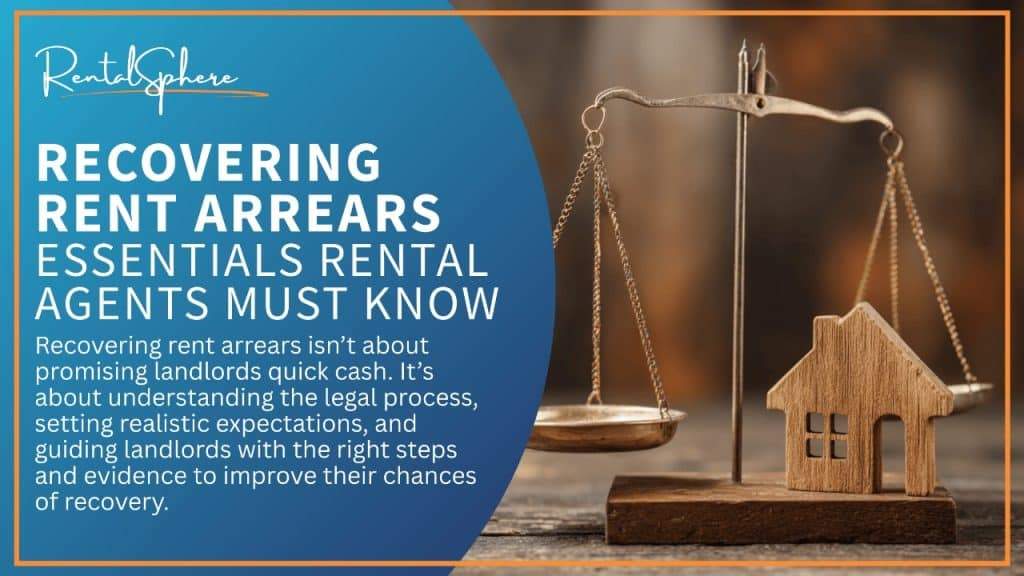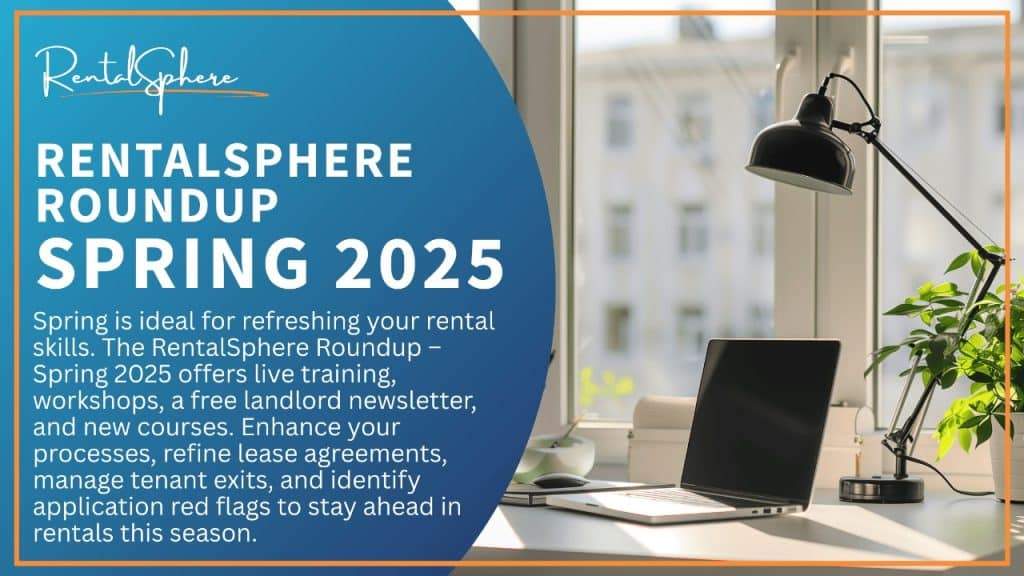Recovering Rent Arrears: Essentials Rental Agents Must Know
Recovering rent arrears is tough. In this article, we unpack the proven essentials every rental agent needs to guide landlords, manage expectations, and improve the chances of recovery.
📩 Get new articles delivered directly to your inbox
Join 2,400+ rental pros who get smarter with tips, guides, compliance updates & more delivered straight to their inbox.
This article is based on Inner Circle Episode 2516, a members-only webinar, where we were joined by Elize le Roux, CEO of Xpello, to unpack the process of recovering rent arrears through a rent interdict summons.
What Can Be Claimed When Recovering Rent Arrears?
- Rental arrears – the obvious starting point.
- Utilities – provided there’s proof, such as municipal or prepaid statements.
- Damages – things like broken fixtures or holes in walls, backed by inspection reports.
- Legal costs – sometimes recoverable, depending on what the court allows.
Tip: Make sure everything is properly documented. Without evidence, even a valid claim can fall flat.
The Legal Path to Recovering Rent Arrears in South Africa
Normal summons
Simply claims the money owed.
Rent interdict summons
Not only claims the debt, but also gives the landlord a chance to attach the tenant’s belongings as security.
This is different from eviction. Eviction removes the tenant from the property. Summons deals with the money owed. They are separate legal processes — they cannot be combined into a single action. If they run together, they do so as two parallel actions.
As the agent, it’s your job to help landlords understand when to focus on recovering rental arrears and when eviction is the priority — or when both should be on the table.
(For more on the laws governing leases and arrears, see the Rental Housing Act).
Related reading: Blacklisting for Rent Arrears – Legal Steps and Best Practice, which explains when and how credit bureaus may be used as part of the arrears process.
The Value of a Judgement in Recovering Rent Arrears
The purpose of a summons is securing a judgement against the tenant. But remember: getting a judgement is not the same as getting the money back. If the tenant doesn’t pay after the judgement, further enforcement steps are required.
- It locks in the debt for up to 30 years.
- Enforcement options include a garnishee order (deducting from salary) or attaching assets.
- It shows the landlord took proper action — which can matter if the tenant ever applies for credit again.
Judgement is leverage. It doesn’t guarantee cash tomorrow, but it keeps the door open for recovery long after the lease has ended. And if the tenant wants to clear their credit history to qualify for finance like a home loan, they will need to settle the debt.
The Reality Check — Will the Landlord Actually Recover Rent Arrears?
- If the tenant is unemployed or has no attachable assets, recovery may not happen.
- Enforcement steps cost money and time.
- Many judgements are never paid in full.
This is why managing expectations is so important. You don’t want a landlord assuming the court process will magically produce the arrears in their account. Sometimes it’s worth it; sometimes it’s better to cut losses.
Timing Considerations for Recovering Rent Arrears
Landlords have 3 years to take legal action on arrears (before the claim prescribes). That doesn’t mean they should always wait.
- Acting quickly can increase chances of recovery while the tenant is still traceable.
- But rushing in without proper documentation can backfire.
As an agent, you need to understand both the process and when to act — so you can guide landlords on the right balance between urgency and preparedness.
How Agents Can Guide Landlords in Recovering Rent Arrears
- Manage expectations – recovery is possible, but never guaranteed.
- Assist with evidence – inspection reports, statements, lease clauses.
- Refer to the right partners – like Xpello, legal specialists who can handle the process.
Always make it clear that your advice is based on rental experience, not legal counsel. If a landlord wants to proceed, refer them to an attorney or expert partner for proper legal guidance.
Wrapping Up
Recovering rent arrears isn’t about promising landlords they’ll definitely get their money back. It’s about understanding the process, knowing when to act, and being able to explain the likely prospects of success.
A judgement gives leverage for the future — but it’s not a guarantee. By setting realistic expectations and supporting landlords with the right processes, you’ll position yourself as the agent who doesn’t just chase arrears, but provides the clarity and professional guidance landlords truly need.
👉 Not yet a member of the Inner Circle? Join today to get immediate access to the replay of this members-only Episode 2516 with Elize le Roux, plus all past and future expert sessions.
• To find out more about our partner Xpello, visit RentalSphere.co.za.
Our trusted partner
Xpello resolves 98% of breaches without eviction
So landlords can re-tenant and restore income sooner
🔥 Do you want to be top of your rental game?
Then the RentalSphere Inner Circle is where you belong!
- Exclusive monthly live training with rental experts
- Access to all past recordings & resources
- A monthly pre-written landlord newsletter
- Access to our expert partners at member-only rates
- WhatsApp support whenever you need it
💬 Rental Pro Hub on WhatsApp
600+ rental professionals already get:
📰 Articles & industry news
💡 Expert rental advice
🎟️ Training invites
✅ Admin-only messages = no noise, no spam.
RentalSphere — we FOCUS on #RentalMatters because #RentalsMatter.



